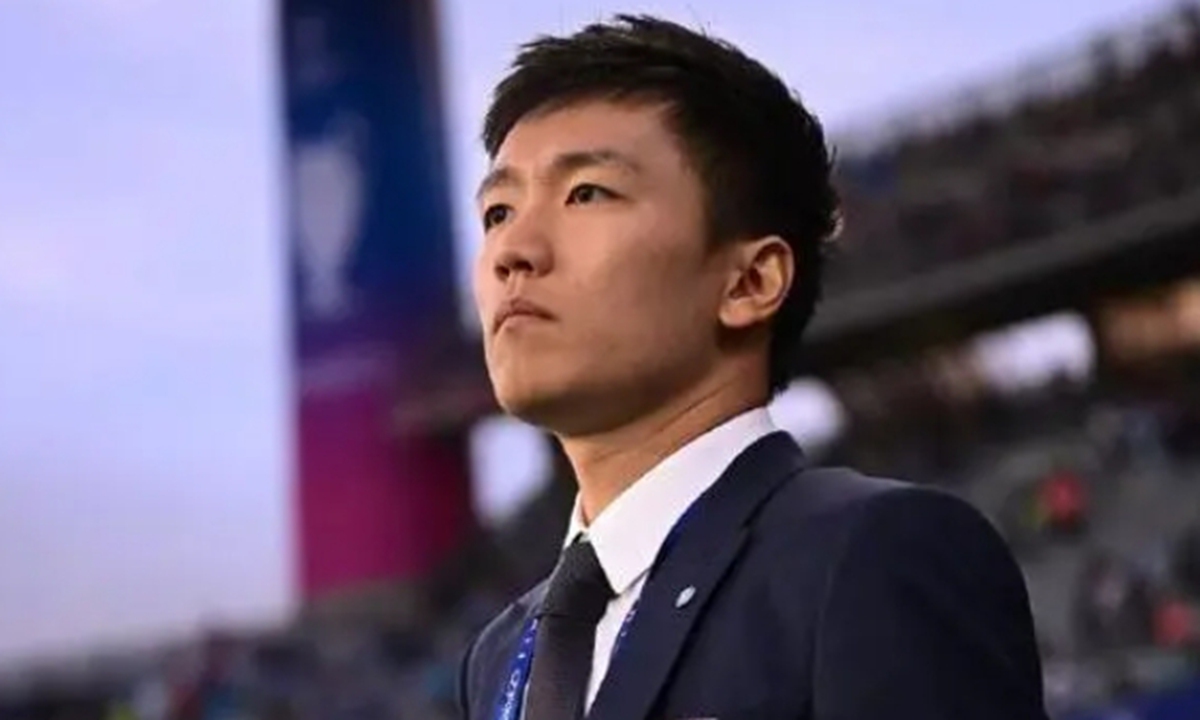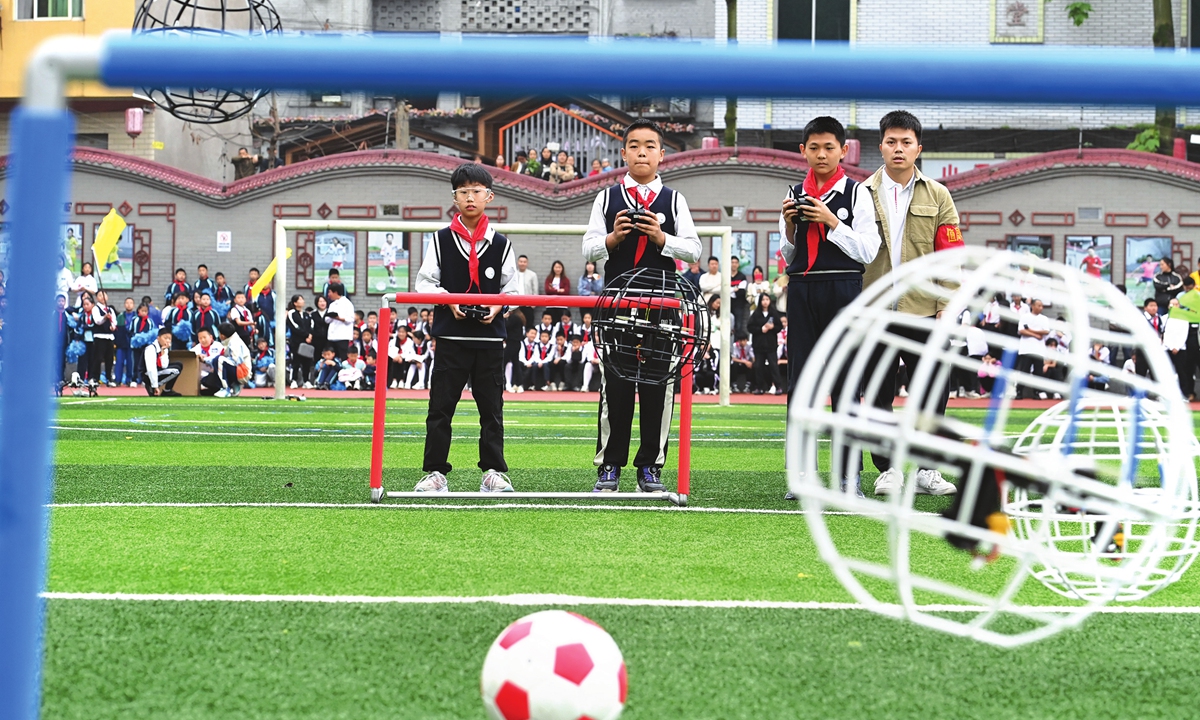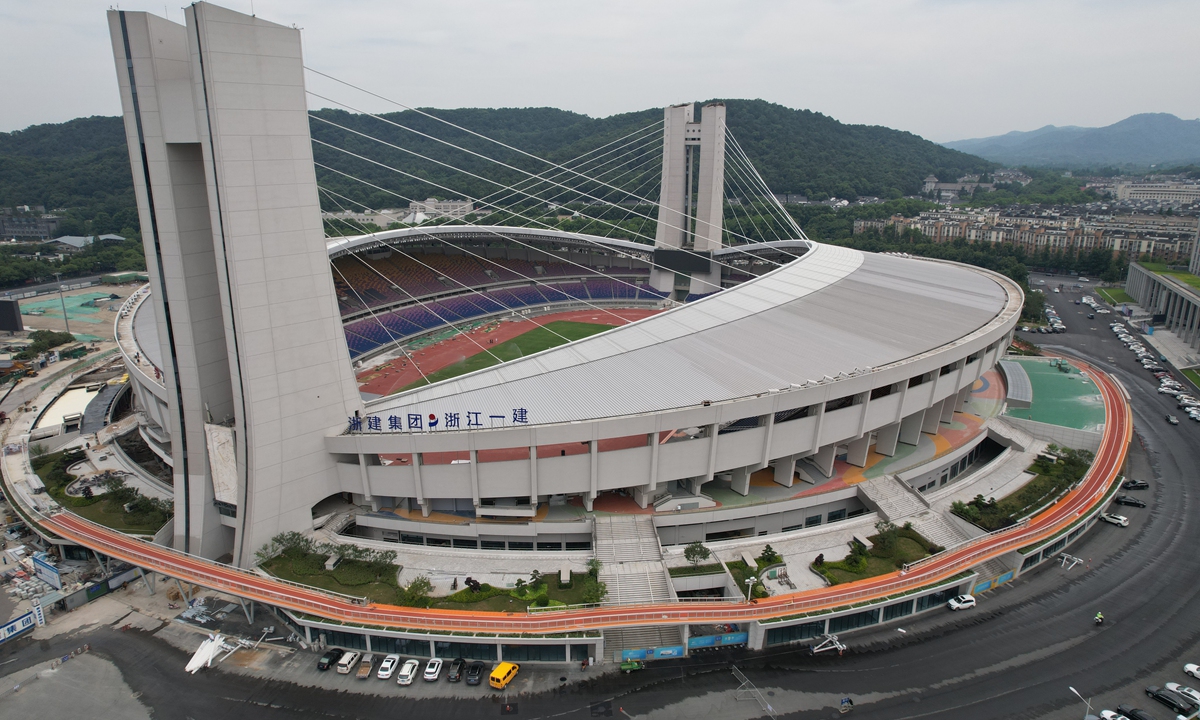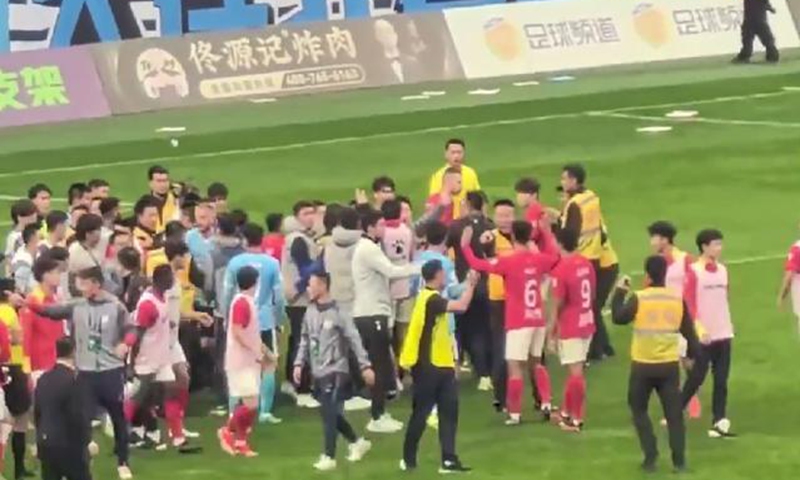SPORT / FOOTBALL
Suning’s tenure with Inter Milan a tale of reckless ambition in soccer investment

Former Inter Milan president Zhang Kangyang Photo: China News Service
The upheaval within Italian soccer champions Inter Milan marks another chapter of mismanaged sporting ambition. US investment fund Oaktree Capital Management has said it took ownership of Inter after a missed 395 million euro ($428 million) payment from the club's Chinese majority shareholder Suning.This dramatic turn of events comes eight years after Suning's acquisition of Inter, during which the company poured over 1 billion euros into the club. Despite winning seven trophies and restoring Inter's prominence by reaching the European Champions League final and boosting stadium attendance, Suning's tenure is now marred by financial mismanagement and strategic missteps.
Suning's exit from Inter echoes the fate of Chinese businessman Li Yonghong's ill-fated ownership of Inter's cross-city rivals AC Milan. Both stories are underpinned by a common thread: a fundamental misunderstanding of soccer economics. These Chinese investors approached club ownership with a gambler's mindset, mistakenly believing that winning championships would automatically translate into financial stability and commercial success. This misconception is emblematic of the broader pitfalls of high-rolling soccer investment, where money is indiscriminately spent in pursuit of glory without a sustainable financial plan.
Suning's lavish spending indeed brought immediate success, as the achievement of Inter under Suning is unparalleled among Chinese investors in European soccer. But it also saddled Inter with unsustainable debt and ongoing financial losses. The reckless expenditure destabilized the club's financial foundation, leading to a series of desperate measures, including the forced sales of key players like Achraf Hakimi and Romelu Lukaku. When potential investors were scared away by the mounting debt and financial instability, Suning's broader sports management also began to crumble, as seen with the dissolution of Jiangsu Suning FC three months after winning the Chinese Super League in 2020.
The downfall of Suning with Inter and Li with Milan serves as a stark warning to future investors in soccer. Their shared narrative underscores the dangers of speculative investment and the flawed belief that titles alone can secure a club's financial future. Success in modern soccer demands a delicate balance between competitive performance, commercial viability and sound financial management. Clubs that achieve this balance are not only successful on the pitch but also attractive assets in the marketplace.
Sustainable soccer clubs are built on robust financial health, a capacity for generating revenue, and a clear path to profitability. In contrast, clubs that rely on continuous financial bailouts become bottomless pits for capital, devouring investments without ever stabilizing. Such clubs turn into liabilities, their once-coveted status transforming into a burden too heavy to bear.
Chinese investors in soccer, and by extension other sports, need to move beyond the simplistic notion that winning championships can magically resolve all financial woes. While winning titles can elevate a club's profile and attract sponsors, it does not guarantee a sound business model. The true essence of sports investment lies in understanding and navigating the complex interplay of sporting success, commercial operations, and financial prudence.
Suning's misadventures at Inter highlight a critical lesson: glory on the field must be matched by diligence off it. The age of extravagant spending without regard for financial sustainability is over. Modern soccer demands a strategic approach, where long-term planning and financial discipline are as crucial as assembling a winning squad.
The fall of Suning at Inter serves as a wake-up call for all current and prospective soccer investors. The allure of instant success and glory must be tempered with a realistic and sustainable business strategy. Only by fostering a well-balanced approach can soccer clubs thrive in the long term, ensuring their legacy both on and off the pitch.
The author is a reporter with the Global Times. life@globaltimes.com.cn



